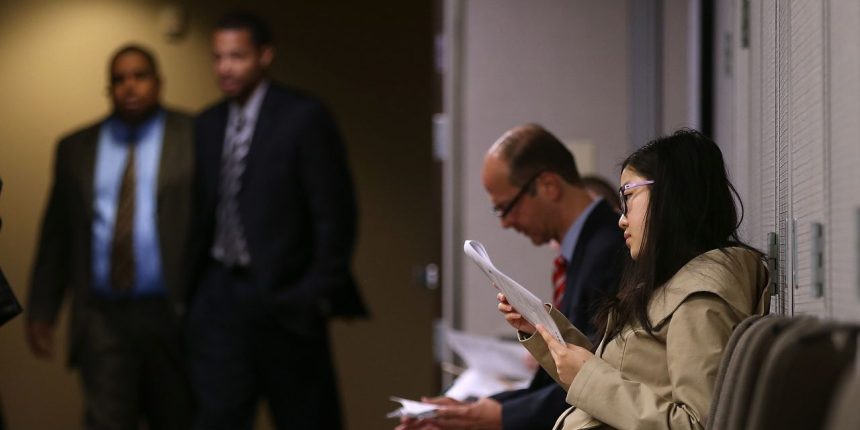The numbers: U.S. private-sector employment rose by a tepid 89,000 in September, payroll processor ADP said, perhaps a sign the labor market is catching a chill in the early fall.
That’s the smallest increase in two and a half years. Economists polled by the Wall Street Journal had forecast a gain of 150,000.
“We are seeing a steepening decline in jobs this month,” said Nela Richardson, chief economist ADP. “Additionally, we are seeing a steady decline in wages in the past 12 months.”
The ADP payroll estimate can offer clues on the strength of the labor market, but it’s not an accurate predictor of the government’s official employment report that follows a few days later. The two reports often vary widely from month to month, as was the case during the summer, even if they move in the same direction over time.
The government on Friday is expected to report that 170,000 new jobs were created in September, including new hires in government. ADP’s report excludes government employment.
Key details: Virtually all of the new jobs created in September were in the leisure and hospitality business — restaurants, hotels and so forth. Hiring also rose in construction and finance.
Employment declined in manufacturing, transportation and professional jobs.
Small and medium-sized firms added more workers. Employment at large companies fell again.
The annual rate of increase in wages, meanwhile, continued to slow. But wages for both job changers (9%) and those who stay in their jobs (5.9%) are running well above inflation.
ADP’s estimate of employment growth in August was raised slightly to 180,000 from 177,000.
Big picture: The labor market has loosened up. Businesses aren’t hiring as many people and fewer people are quitting, a sign they are more worried about job security.
Yet there’s little evidence that rising interest rates and still-troublesome inflation are putting a big dent in the economy or boosting unemployment.
Looking ahead: “The revamped ADP survey did pretty well for a while in terms of foreshadowing the initial report of nonfarm payrolls in each month, but then missed the mark by miles in June and July,” noted chief economist Joshua Shapiro of MFR Inc.
“August was, however, excellent, getting the number almost precisely correct,” he added. “Time will tell how accurate today’s September tally is versus the official data.”
Market reaction: The Dow Jones Industrial Average
DJIA,
and S&P 500
SPX,
were set to open slightly higher in Wednesday trades.
The slowdown in hiring was taken as a sign that the labor market and economy are cooling off, exactly what the Federal Reserve wants to see in its fight against inflation.
Read the full article here




